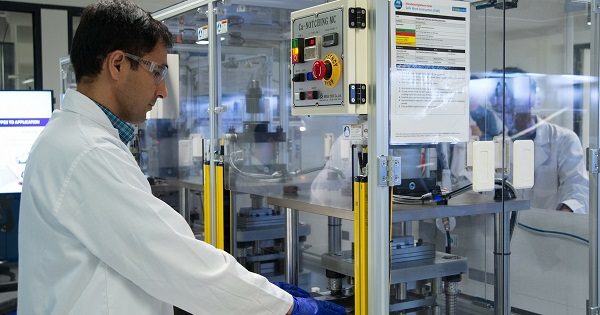Deakin University working on low-cost battery material
Deakin University’s Institute for Frontier Materials (IFM) is working on a new type of battery material that will reduce the cost and environmental impact of high performance batteries. It’s partnering up with Calix and Boron Molecular to explore a more readily-available and cheaper compound to use.
The project will go for three years and has been granted $3 million by the federal government’s Cooperative Research Centre Projects program which supports short-term industry-led collaborations in new technologies, products and services.
ADVERTISEMENT
Once completed, it will develop a roadmap to set out commercialisation pathways and a blueprint for an advanced manufacturing hub of nano-active materials, electrolytes and packing technologies for Australia.
“There is a global search for safe, low cost, high capacity, high performing batteries given the demand for high performance energy storage and electric vehicles,” says IFM deputy director Professor Maria Forsyth.
“The challenge for Australia is to develop a sustainable battery manufacturing industry that has global reach through process innovation.”
Deakin is able to use the IFM’s battery technology research and innovation hub (BatTRI-Hub), a centre focused on battery research and the commercialisation of energy storage technologies.
The team will produce customised micron-sized nano-electroactive materials for intercalation-based anodes and cathodes. This would be integrated with optimised ionic electrolytes to make up to 10kWh battery pack prototypes at Deakin, through BatTRI-Hub.
“We will be using high rate processing technology with Australian materials,” says Professor Patrick Howlett.
“These materials will also have capacity to go into high performance supercapacitors which store charge like a battery and can dispense that charge very quickly.”
A field trial will take place to test the batteries at Deakin’s Warrum Ponds campus when ready.
-
ADVERTISEMENT
-
ADVERTISEMENT


